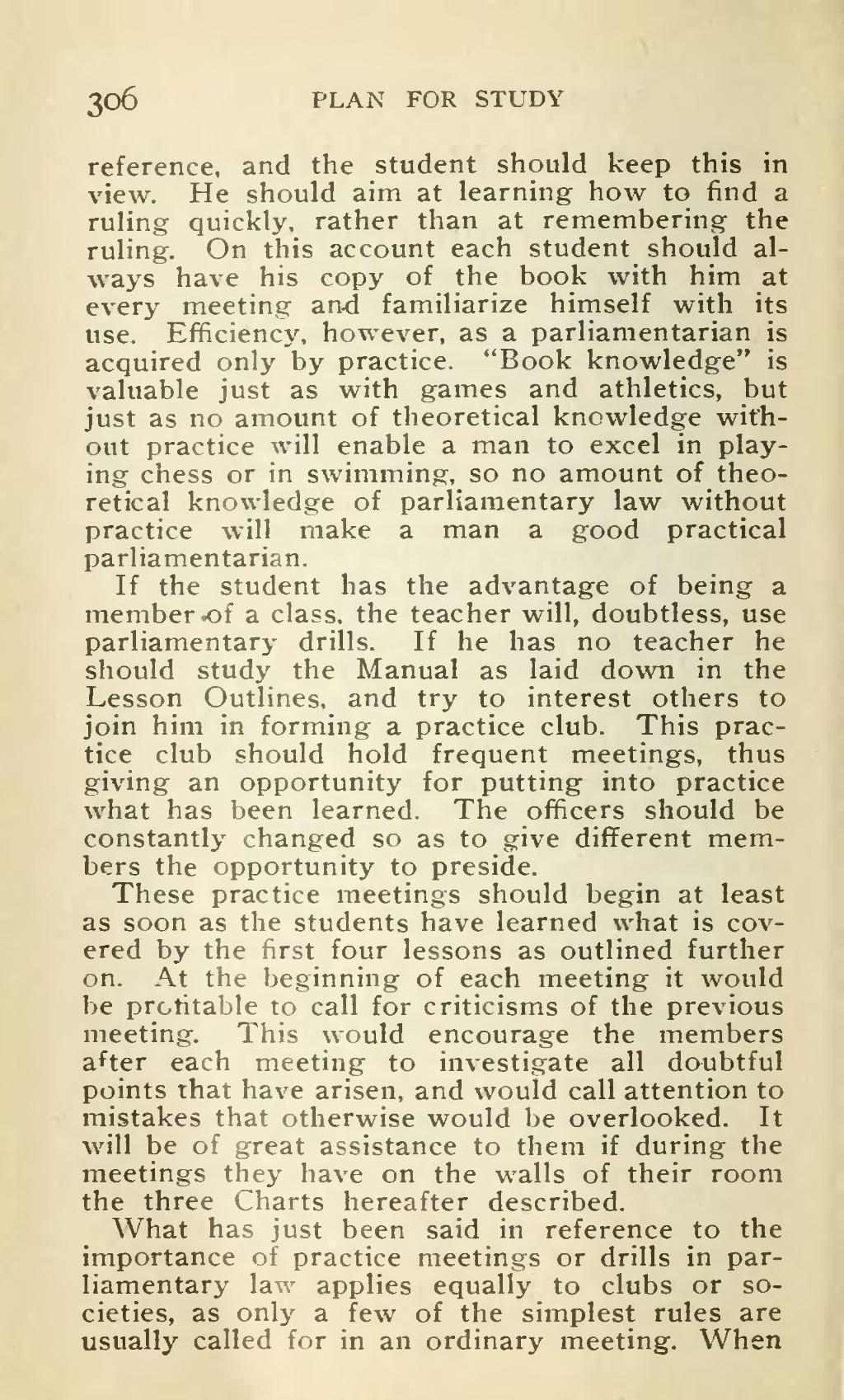reference, and the student should keep this in view. He should aim at learning how to find a ruling quickly, rather than at remembering the ruling. On this account each student should always have his copy of the book with him at every meeting and familiarize himself with its use. Efficiency, however, as a parliamentarian is acquired only by practice. "Book knowledge" is valuable just as with games and athletics, but just as no amount of theoretical knowledge without practice will enable a man to excel in playing chess or in swimining, so no amount of theoretical knowledge of parliamentary law without practice will make a man a good practical parliamentarian.
If the student has the advantage of being a member of a class, the teacher will, doubtless, use parliamentary drills. If he has no teacher he should study the Manual as laid down in the Lesson Outlines, and try to interest others to join him in forming a practice club. This practice club should hold frequent meetings, thus giving an opportunity for putting into practice what has been learned. The officers should be constantly changed so as to give different members the opportunity to preside.
These practice meetings should begin at least as soon as the students have learned what is covered by the first four lessons as outlined further on. At the beginning of each meeting it would be profitable to call for criticisms of the previous meeting. This would encourage the members after each meeting to investigate all doubtful points that have arisen, and would call attention to mistakes that otherwise would be overlooked. It will be of great assistance to them if during the meetings they have on the walls of their room the three Charts hereafter described.
What has just been said in reference to the importance of practice meetings or drills in parliamentary law applies equally to clubs or societies, as only a few of the simplest rules are usually called for in an ordinary meeting. When
